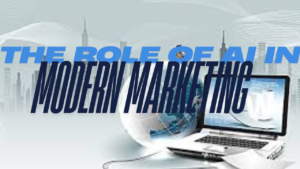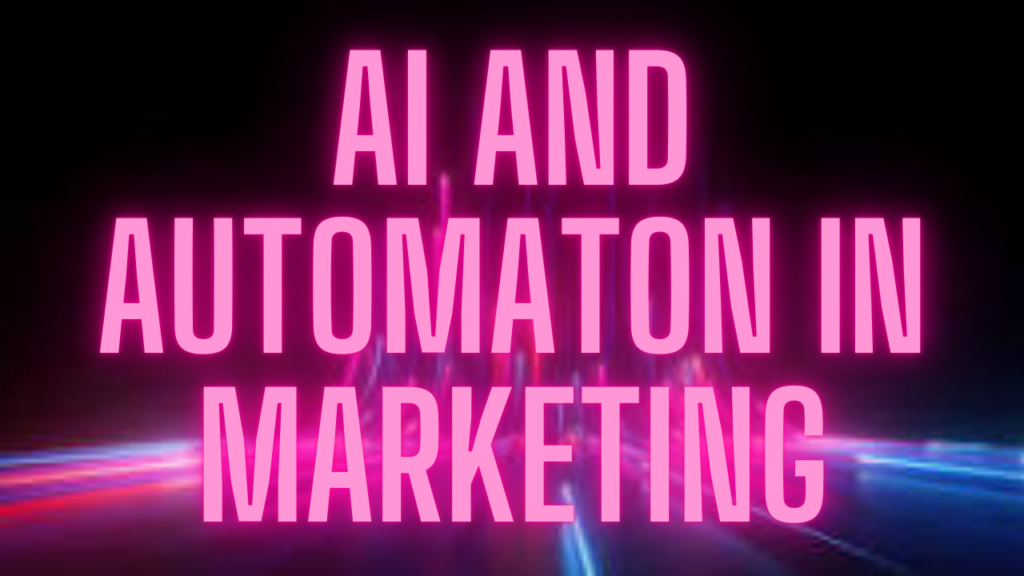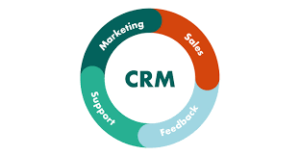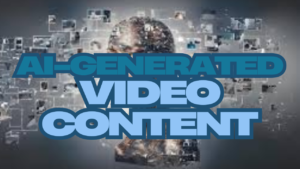The Role of AI in Modern Marketing
AI is fundamentally altering the way businesses understand and interact with customers. By analyzing vast amounts of data, AI can predict consumer behavior, automate repetitive tasks, and deliver hyper-personalized marketing message.
1. Personalization at Scale
The following are some significant areas where AI is having an impact:
Modern consumers expect personalized experiences, and AI enables businesses to meet this demand effectively. Machine learning algorithms analyze user data, purchase history, and browsing behavior to deliver targeted content and recommendations. For example, Netflix and Amazon use AI-driven recommendations to enhance user experience, increasing engagement and sales.
2. Chatbots and Virtual Assistants
AI-powered chatbots are transforming customer service and engagement. These bots provide instant responses, answer FAQs, and guide customers through the sales funnel. Unlike human agents, chatbots can operate 24/7, ensuring round-the-clock support and improved customer satisfaction.
3. Predictive Analytics
Predictive analytics harness AI’s power to forecast trends and customer behavior. Businesses use this technology to anticipate customer needs, refine marketing strategies, and optimize inventory management. AI-driven insights help brands tailor their campaigns for maximum impact, ensuring better ROI on marketing spend.
4. Content Generation and Optimization
AI can now generate high-quality content tailored to specific audiences. Tools like GPT-based text generators create blog posts, email campaigns, and social media captions, saving marketers time and effort. Additionally, AI analyzes content performance and suggests improvements, ensuring better engagement and conversions.
5. Programmatic Advertising
AI automates ad placements by leveraging real-time data and machine learning algorithms. Programmatic advertising ensures that ads reach the right audience at the right time, reducing wasted ad spend and improving conversion rates. Google and Facebook’s advertising platforms use AI to optimize ad delivery, helping brands maximize their marketing budgets.
The Power of Automation in Marketing
Automation takes AI-driven insights and applies them to streamline marketing operations. Here’s how automation is revolutionizing marketing workflows:
1. Email Marketing Automation
One of the best digital marketing platforms is still email marketing. Automation tools segment audiences, personalize emails, and trigger responses based on user interactions. Brands like HubSpot and Mailchimp offer AI-powered automation to optimize email campaigns, boosting open rates and conversions.
2. Social Media Management
Managing multiple social media accounts can be overwhelming. AI-powered tools like Hootsuite and Buffer automate post scheduling, content curation, and audience engagement. These platforms analyze user interactions and suggest the best times to post, ensuring maximum reach and impact.
3. Lead Scoring and Nurturing
AI-driven lead scoring evaluates potential customers based on their engagement level and likelihood to convert. Marketing automation platforms assign scores to leads, allowing sales teams to focus on high-value prospects. Automated nurturing campaigns keep leads engaged through personalized emails and retargeting strategies.
4. Customer Relationship Management (CRM) Automation
CRM tools like Salesforce and Zoho use AI to automate customer interactions, track sales pipelines, and provide predictive insights. These platforms help businesses maintain strong customer relationships by delivering timely follow-ups and personalized experiences.
The Future of AI and Automation in Marketing
AI and automation are continuously evolving, and the future holds even more possibilities for marketers. Here are some emerging trends to watch:
1. AI-Powered Voice Search Optimization
With the rise of voice assistants like Siri, Alexa, and Google Assistant, voice search is becoming a dominant trend. Marketers need to optimize content for voice queries, ensuring their brands remain visible in voice search results.
2. Hyper-Personalization with AI
AI will continue to refine personalization, delivering real-time, one-to-one marketing experiences. Brands will leverage AI-driven insights to create highly tailored campaigns that resonate with individual consumers.
3. AI-Generated Video Content
Video content is a powerful marketing tool, and AI is making it easier to produce personalized videos at scale. AI-driven video platforms can create customized ads, tutorials, and promotional content based on user preferences.
4. Augmented Reality (AR) and AI Integration
AI-powered AR experiences will redefine customer engagement. Brands will use AR to provide virtual try-ons, interactive ads, and immersive shopping experiences, enhancing customer satisfaction and purchase intent.
Embracing AI and Automation: A Necessity for Marketers
The integration of AI and automation in marketing is no longer optional—it’s essential for businesses looking to stay ahead in the digital age. Companies that embrace these technologies will enjoy increased efficiency, better customer insights, and enhanced engagement.
To leverage AI and automation effectively, businesses should:
- Invest in AI-driven marketing tools
- Continuously analyze and refine AI-generated insights
- Focus on delivering personalized and meaningful customer experiences
- Stay updated with emerging AI trends and innovations
Conclusion
AI and automation in marketing are revolutionizing the way businesses connect with their audiences, streamline processes, and drive growth. By leveraging data-driven insights, personalized campaigns, and efficient automation tools, brands can enhance customer experiences while saving time and resources. As technology continues to evolve, embracing AI and automation in marketing will be crucial for staying competitive in the digital landscape. Now is the time to adopt these innovations and transform your marketing strategy for long-term success.
Looking to explore more blogs related to digital marketing? Check out my blogs.



